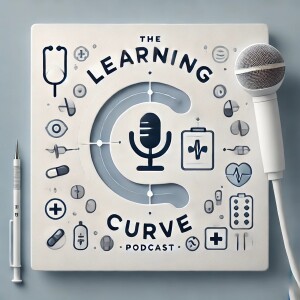The Learning Curve
Hi, my name is Irtaza Asar, and I’m a practicing emergency medicine clinician and educator in northwestern Pennsylvania.
For a long time, I’ve had a vision—one that’s finally coming to life. I’ve always wanted to create a medical education platform that amplifies the voices of educators across the world, showcasing their expertise, innovations, and unique approaches to teaching.
This platform is about strengthening those voices, ensuring they are heard, and providing a space where their insights can inspire and shape the future of medical education.
But this isn’t just about sharing ideas—it’s about starting a conversation. If you have thoughts, experiences, or perspectives that can contribute to this dialogue, I want to hear from you. Let’s learn and grow together.
So without further ado, let’s start the conversation.



